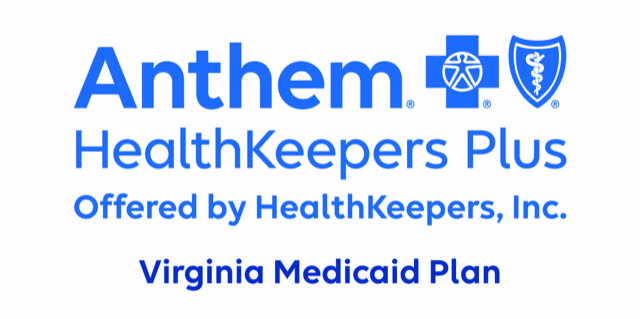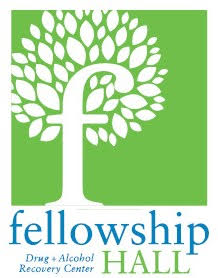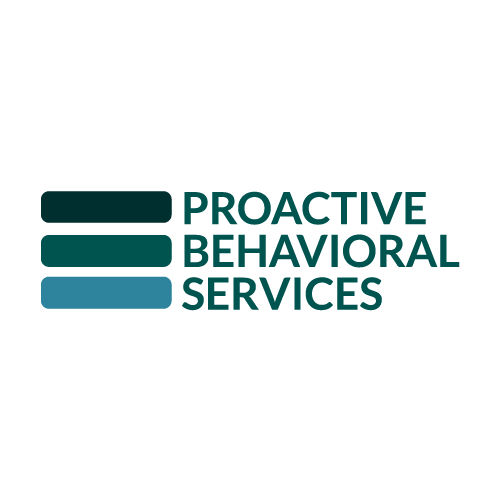Sunday | Monday | Tuesday | Wednesday
2024 Monday Schedule
7:30 to 8:00 AM
Nancy L. Johnston, MS, LPC, LSATP, MAC, NCC
“Morning Mindfulness: Practices for Calming, Centering & Grounding”
Level: Introductory
Limited: 30 participants
Contact Hours: 0.5
Brief Description:
Come wake to the day and to the present moment. This morning session offers guidance in practicing the elements of mindfulness: deep breathing, stretching, and body scanning. More than ever, we acknowledge the importance of our body in healing and recovery. Whether you are new to mindfulness or are a seasoned practitioner, this morning session offers the opportunity to learn and practice. Almost all of the session time will be experiential work directed toward grounding and centering self. Participants should come prepared for sitting meditation in chairs and gentle, mindful yoga both in chairs and standing.
Educational Objectives:
- Quiet your mind
- Relax your body
- Be in the present
- Experience grounding self
- Experience connection with self
Session Presentation
In this precious 30-minute daily session I will offer information about the whys and hows of mindfulness, but fairly quickly we will move into practices to experience the present moment through body, breath, and our senses. I will share mindfulness-based readings and instructions as we settle into calm and centeredness.
Themes Addresses: Skills Training.
8:15 to 11:45 AM
KEYNOTE:
Dr. Paul Hardy
“Mastering Your Emotions: Strategies for Managing Anger and Stress”
Level: Intermediate
Limited: Open
Other: 0.5 Ethics included
Contact Hours: 3.0
Brief Description:
84% of people surveyed said Americans are angrier today compared with a generation ago. In this presentation we will explore ways to break down barriers and help clients open up about the causes of their anger, acknowledging the roots of their choices so they will no longer run from their feelings or refuse to share them with others.
Young adults are still in the process of developing effective coping strategies (American Psychological Association, 2017),
So, they typically report higher levels of stress than middle-aged or older adults.
For example, they are more likely to use maladaptive coping strategies, (smoking, substance use, and drinking alcohol), than older adults There is also evidence that young adulthood is a critical period for the development of emotional maturity and emotion regulation.
Educational Objectives:
Learning Objectives: Participants will be able to –
- Build a strategy to understand the sequence and process of anger.
- Integrate a system to understand personal stressful situations.
- Demonstrate the use of the anger wheel for stress management with clients.
- Apply the “CALM” method to prepare clients to deal with anger in
Themes Addresses: Skills Training; Prevention; Ethics
Karen Ingersoll, Ph.D. & Christopher Wagner, Ph.D.
“New Ideas for Motivational Interviewing Groups for Addiction: An Experiential Workshop”
Day/Date: Monday, July 22, 2024 YOU MUST ATTEND FULL DAY WORKSHOP
Time: 8:15 AM – 11:45 AM and continued 1:15 PM – 4:45 PM
Level: Intermediate
Limited: 48
Other: Ethics included
Contact Hours: 6.0
Brief Description
This 3-hour experiential workshop will mix presentation of MI groups concepts with practice experiences. We use a mix of mini-lectures and interspersed experiential learning that will guide you to conduct and experience group activities typical of those in our MI groups model, along with plenty of discuss during the workshop. Participants will become members of a group to practice skills in small groups, participating as a group member, or possibly practicing the group leader role. We will address key issues including Starting the Group Off Well, Building Momentum, Creating Connection, finding a Direction for change, and Ending Well.
Educational Objectives
- Participants will be able to identify 1-3 culturally responsive skills consistent with Motivational Interviewing that facilitate connection in a group
- Participants will be able to list 3 key group processes that facilitate change in an MI group
- Participants will gain experience guiding group members to identify their intrinsic motivations for change
- Participants will learn key skills needed to facilitate MI groups
Themes Addresses: Skills Training; Ethics
12:00 to 1:00 PM
Lunch Break/Lunchbox Session/Exhibits
Anthony ‘Tony’ McDowell, Executive Director, Opioid Abatement Authority & Cindy Newman
“How Virginia’s Cities and Counties are Using Opioid Settlement Funds to Fight the Opioid Epidemic”
Level: Introductory/Intermediate
Limited: Open
Contact Hours: 1.0
Brief Description:
This session will include an overview of Virginia’s participation in the various opioid-related settlements, which are expected to result in more than $1.1 billion to the Commonwealth over the life of the settlements.
Educational Objectives:
The presenter will explain allowable uses of the funds, provide a description of the statewide allocation formula, and the process and method of awarding grants. Finally, the presentation will include examples of grants that have been awarded and the results of those efforts.
Themes Addresses: Healthcare reform.
1:15 to 4:45
Karen Ingersoll, Ph.D. & Christopher Wagner, Ph.D.
“New Ideas for Motivational Interviewing Groups for Addiction: An Experiential Workshop”
Level: Intermediate
Limited: 48
Contact Hours: 6.0
YOU MUST ATTEND FULL DAY WORKSHOP
See Description above
Lendell W. Braud, Ph.D.
“Holistic Program Utilizing Substance Use Disorder, Mental Health, and Create-an-Image Relaxation Trauma Therapy”
Level: Introductory
Limited: 30
Other: 0.5 Ethics included
Contact Hours: 3.0
Brief Description:
Dr. Braud investigated another study yielding significant decreases Anxiety, Depression, Hopelessness, Guilt, Worthlessness, and Resentment. Resiliency factors increased significantly (Joy, Forgiveness, Calm/Peaceful, Belief in Self, and Self-Esteem). The Adverse Childhood Experiences (ACEs) Test was administered to 125 Substance Use Disorder residents. Nine percent (9%) of the general population have 4 or more Adverse Childhood Experiences while 68% of our residents had 4 or more ACEs. In addition to childhood trauma, our SUD population had many traumatic events in adulthood (overdoses, death of friends, homelessness, and violence). Residents rated the Trauma Therapy as the most helpful element of the program.
Educational Objectives:
Objective #1 Understand the importance of evidence-based research that establishes the type and severity of co-occurring conditions in the Substance Use Disorder Population. Learn how simple but effective techniques can be added to any program to increase the effectiveness of the program.
Objective #2 Understand that all intense emotions (Anxiety, Anger, Frustration, PTSD, Depression) are accompanied by strong increases in physical symptoms such as increased heart rate, muscle tension, blood pressure, and respiration. They will learn simple effective techniques to reduce these physical symptoms, decrease negative emotions, and develop emotional self-regulation. This is especially important to decrease Anger and Anxiety in intense situations. Presently, we are investigating how this therapy can reduce Domestic Violence.
Objective # 3 Understand that events from the past cannot be changed but the negative emotions related to traumatic events can be released using the simple trauma release technique. Also, once the negative emotions have been released, the event no longer has power over you. This will also be helpful in accepting positive emotions like Hope, Calmness, Optimism, Forgiveness, Self-Esteem, and Trust.
Themes Addresses: Basics; Ethics
Ashley Harrell, LCSW, MSW, BSW & Jason Lowe, MSW
“Understanding Medicaid and Impact for Substance Use Disorder Treatment and Recovery in Virginia”
Level: Introductory/Intermediate
Limited: Open
Other: 0.5 Ethics included
Contact Hours: 3.0
Brief Description:
This presentation will provide information relevant to participants working at various points of intervention with low-income individuals seeking access behavioral healthcare including an overview of the Medicaid Addiction and Recovery Treatment Services (ARTS) benefit and the statewide Behavioral Health initiative. It will highlight supports and healthcare access for particularly vulnerable and marginalized individuals including individuals experiencing a substance use disorder (SUD) and those with behavioral health complexities.
Presenters will review how Virginia Medicaid is working to increase access to SUD prevention and treatment services, and how participants can become a part of increasing access to SUD services across Virginia. Medicaid will also discuss innovative efforts for expanding access including: the Emergency Department Bridge Clinic model; 1115 Waiver opportunities; Peer Recovery Support Services, etc. during this session, as well as available funding opportunities that Medicaid is collaborating with the Opioid Abatement Authority. Medicaid will also provide an overview of the Behavioral Health benefit and relevant services that address co-occurring conditions. The Medicaid behavioral health benefit is based on a full continuum of evidence-based, trauma-informed and prevention-oriented care that focuses on bolstering resiliency and recovery for Medicaid members.
The ethical principles embedded throughout this presentation will primarily include DMAS’ commitment to service to Medicaid members. This commitment to service is realized through our aim to promote health equity throughout the Commonwealth by helping those in need access quality health and behavioral health insurance coverage regardless of income level.
Educational Objectives:
I. Three (3) learning objectives
- Attendees will strengthen their knowledge of how DMAS is creatively and effectively utilizing resources to increase access and the quality of behavioral health services across Virginia.
- Attendees will strengthen their knowledge of how DMAS is addressing the national opioid crisis to include partnerships, collaborations and engagement with members, communities, providers and many other stakeholders.
- Attendees will strengthen their knowledge of how DMAS is prioritizing evidence-based services, trauma-informed and prevention-oriented care
Themes Addresses: Introductory and Intermediate.
Suzan K. Thompson, Ph.D., LPC & Tina Curran-Taylor, MA, LPC, ICADC, BC-TMH
“Emotional Freedom Techniques (EFT) for Enhancing Mindfulness and Meditation”
Level: Introductory
Limited: 20
Other: 0.5 Ethics included
Contact Hours: 3.0
Brief Description:
- Introductions
- Brief background/history/research on Energy Psychology and Meridian Tapping (EFT)
- Linking evidence-based practice of EFT with substance abuse treatment, mindfulness & meditation
- Case studies & application
- Up-to-date research on the foundation of EFT and its impact on the body
- 30 min of ethics included
- Practice with EFT using a prepared worksheet and onsite coaching to guide effective use
- Demos & Practice
Educational Objectives:
This 3-hour workshop is a combination of information, activities, learning tools and resources. You will…
- Find out about the fundamentals of EFT/tapping for professionals to ethically guide others to health and healing.
- Learn the background knowledge you need to begin to work with your own experiences.
- Understand the application of the technique to guide clients toward hope and healthier choices.
- Learn how EFT has been ethically applied to the treatment of clients
- Develop your skills by participating in experiential exercises, using templates to guide your practice.
- Fine-tune your personal approach to dealing with life’s difficulties, helping you shift your energy related to thoughts and feelings.
We’ll work on emotional issues by tapping on certain meridian points with our fingertips. This addresses one cause for emotional issues (unbalanced energy meridians). You’ll find that you can often quickly heal emotional and psychological blocks to clear the way for deeper practices of mindfulness and meditation, enabling those who practice it to face challenges and find solutions with mindfulness and resilience. EFT contributes to a healthier expression of thoughts and emotions, alleviating pain, disease and physical ailments. This presentation will also address the ethical application of EFT Tapping, including informed consent and ways to present the use of this novel, evidence-based set of techniques.
Themes Addresses: Skills Training; Ethics










